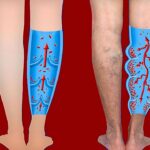A female body is most likely to go through unbearable discomfort and stress every month. The menstrual cycle symptoms are considered intolerable, but the real problem begins when uterine fibroids come to the fore. Exploring the link between hormones and fibroid growth is worth the research. Female sex hormones play a very vital role in the growth of these fibroids. Hormones can both cause and relieve the symptoms.
How hormones cause fibroids
The clear incitement is still unknown, but the hormonal imbalance is believed to lead to fibroid growth. Estrogen and progesterone are known to affect fibroid development and growth fundamentally. As the hormone levels shoot up when the woman is pregnant, fibroid growth also becomes fast. Similarly, the growth stops when the woman reaches the age of menopause.
Estrogen is fundamentally responsible for the growth and replacement of the uterus lining every month. Meanwhile, progesterone is responsible for facilitating the implantation of a fertilized egg. If the levels of each hormone are too high, they potentially lead to the development and growth of the fibroid.
How hormones treat fibroids
Therapies use some hormones to relieve extreme period pain and heavy menstrual bleeding temporarily. These treatments can shrink the fibroids but cannot eliminate them. However, these treatments can only be used for a limited period because of their associated risks. The therapy also only works while it is being used, and the fibroid will start growing as soon as the treatment is stopped. Therefore, these therapies are only used before surgery and can be an option to opt for before menopause for women who cannot have surgery. Several types of hormone therapies include the following.
GnRH analogues
Estrogen fastens the growth of fibroids and, therefore, the GnRH analogues; the artificially produced hormone is used to impede estrogen production and slows the growth. GnRH analogues are usually injected into the muscle tissues and skin at least once every month to shrink the size of the fibroid. GnRH analogues have side effects and are not very suitable for long-term use. GnRH analogue can reduce the body’s estrogen production to a level that getting pregnant while using them becomes impossible. But once the treatment is stopped, ovaries start functioning like normal, and it is possible to get pregnant again.
Are GnRH analogues effective?
Not all women are known to benefit from the GnRH analogues; about half do not see any improvement. For those who see improvement, GnRH analogues stop the growth, shrink the fibroids, and treat anaemia.
Side effects
GnRH analogues are similar to menopause when it comes to the symptoms, i.e.:
• About 45 out of 100 women experience hot flashes
• About 35 out of 100 women experience sweating
• About 10 out of 100 women experience vaginal infections
Hormonal Intrauterine devices
Hormonal intrauterine devices (IUDs), or hormonal coils, get inserted into the uterus and remain there for up to 5 years. These normally are used for contraception. An artificial hormone known as progestin, similar to progesterone, helps to prevent the lining of the womb from building. The IUDs are used to treat fibroids that are not very huge. The large fibroids change the womb’s shape, restricting the insertion of the IUDs.
How effective are IUDs
IUDs cannot treat symptoms like pain and cramps because they cannot reduce the size of fibroids. However, the amount of blood lost during menstruation can be lowered. Hence it helps to treat anaemia.
Side effects
The side effects of the IUDs are more common during the first few months than the later
• Acne
• Mood swings
• Breast tenderness
• Spotting
Low estrogen diet
Certain foods elevate the estrogen levels in a woman’s body. These foods should be eliminated, i.e. margarine, white flour products, fatty and processed meats, and sugary foods.
Other than hormone therapy, there are some longer-lasting minimally invasive treatment options like uterine fibroid embolization (UFE). UFE is safer than the hysterectomy and myomectomy. This procedure can safely be performed.




